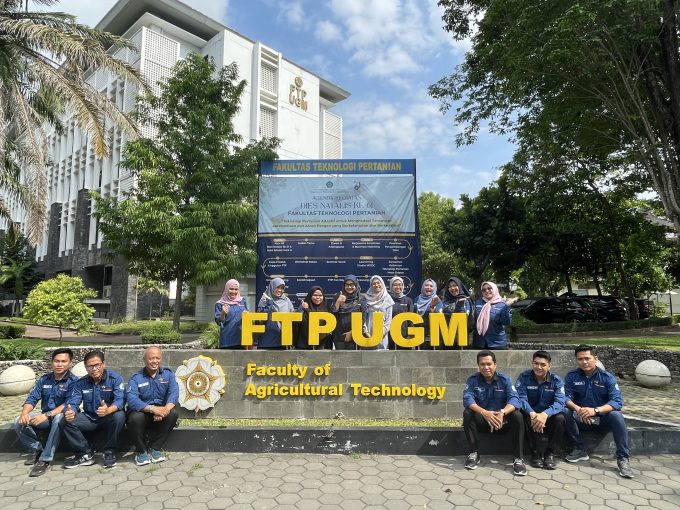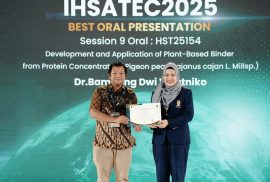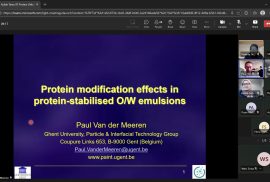
Yogyakarta, September 30 – October 9, 2024 — The Department of Food and Agricultural Product Technology (TPHP) at Universitas Gadjah Mada (UGM) conducted a training program for 12 vocational high school (SMK) teachers from various regions across Indonesia. The training aimed to equip these educators with up-to-date knowledge and practical skills in proximate analysis (including moisture, ash, protein, fat, and fiber content), microbiological testing, and organoleptic evaluation of food products. Additionally, the program sought to enhance the participants’ ability to design and implement project-based learning in the field of food technology.
The training began with a welcoming session by TPHP lecturers, followed by a pre-test to assess participants’ baseline knowledge. Participants were then given a lab tour and an introduction to Occupational Health and Safety (OHS) and Good Laboratory Practices (GLP) delivered by Dr. Manikharda, S.T.P., M.Agr., Yunika Mayangsari, S.Si., M.Biotech., Ph.D., and Ashari Priyanto, S.T.P.


The program was designed with a comprehensive approach, combining theory, practical sessions, data processing, discussions, and presentations. The theoretical materials included:
- Microbiology Theory by Stugestus Kurniawan Jati, S.T.P., M.Sc.
- Sampling Theory by Dr. Qurrotul A’yun, S.T.P., M.Sc., Dr. Manikharda, S.T.P., M.Agr., and Dr. Lulum Leliana, S.T.P.
- Water and Ash Theory by Dr. Fiametta Ayu Purwandari, S.T.P., M.Sc.
- Quality Control Theory by Wahyu Dwi Saputra, S.T.P., M.Agr.Sc., Ph.D.
- Protein Theory by Dr. Arima Diah Setiowati, S.T.P., M.Sc.
- Fat Theory by Dr. Lulum Leliana, S.T.P.
- Organoleptic Theory by Dr. Zaki Utama, S.T.P., M.P.


The practical sessions involved participants directly in laboratory testing, including:
- Testing for moisture, ash, and fiber
- Plating and MPN (Most Probable Number) microbiological methods
- Protein and fat testing
- Microbiology practices
- Carbohydrate and calorie analysis
During the final two days, participants underwent an exam, followed by a post-test and overall program evaluation. The training concluded with a closing ceremony, where certificates were awarded to all participants in a moment of appreciation.
 This training initiative aligns with several Sustainable Development Goals (SDGs), particularly SDG 4 – Quality Education, by enhancing the capacity of vocational school teachers to deliver more relevant and industry-aligned education, SDG 9 – Industry, Innovation, and Infrastructure, by equipping educators with the latest food technology knowledge and skills to foster innovation in vocational education and the food industry, and SDG 12 – Responsible Consumption and Production, by promoting essential principles of food quality and safety to support sustainable food production.
This training initiative aligns with several Sustainable Development Goals (SDGs), particularly SDG 4 – Quality Education, by enhancing the capacity of vocational school teachers to deliver more relevant and industry-aligned education, SDG 9 – Industry, Innovation, and Infrastructure, by equipping educators with the latest food technology knowledge and skills to foster innovation in vocational education and the food industry, and SDG 12 – Responsible Consumption and Production, by promoting essential principles of food quality and safety to support sustainable food production.
Through this training, vocational school teachers are expected to be better prepared to transfer knowledge and practical skills to their students, producing graduates who are job-ready and capable of supporting sustainable development in Indonesia’s food industry.
By: Firstnandita Keisha




